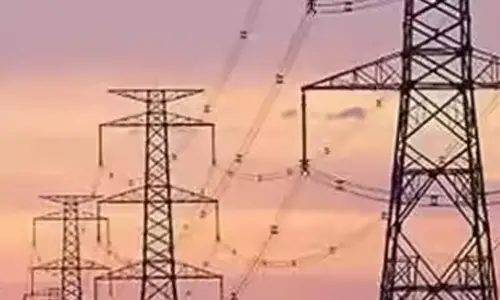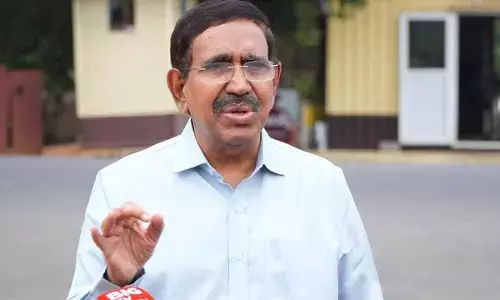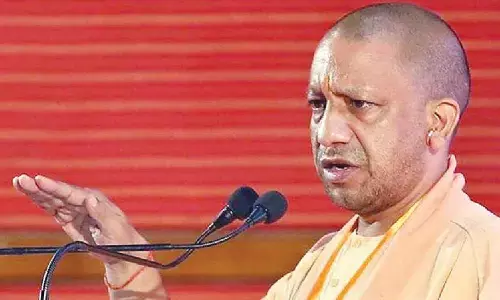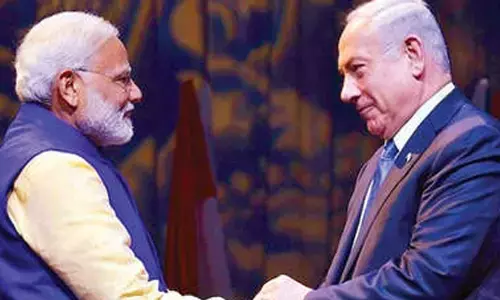More than Covid-19, inequality killed many
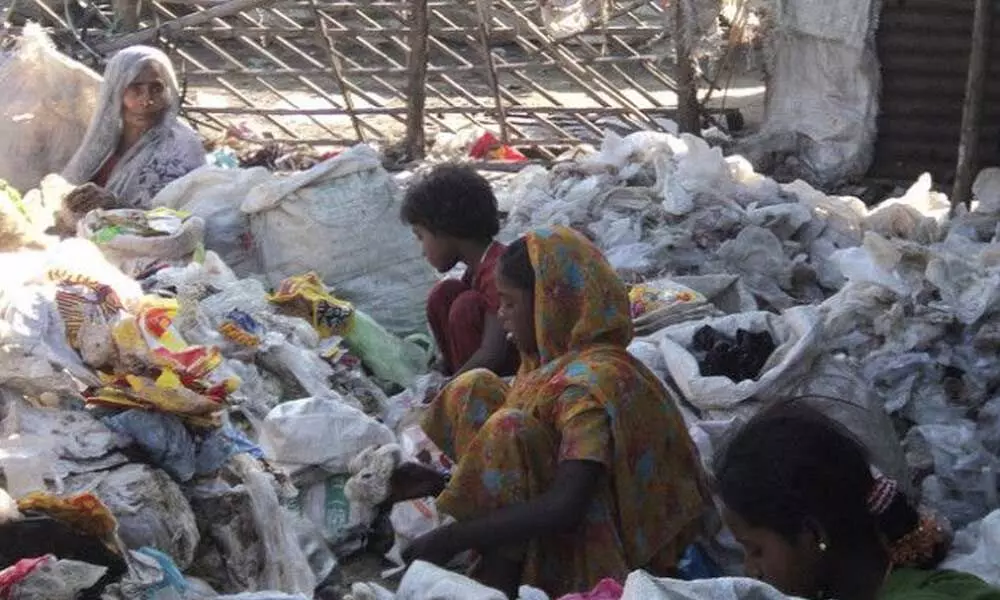
More than Covid-19, inequality killed many
Govt raising burden on a large section of people, while easing taxes on super-rich
On June 10, 2008, the International Labour Organization (ILO) adopted the ILO Declaration on Social Justice for a Fair Globalization. On November 26, 2007, the UN General Assembly declared that 20th February will be celebrated every year as the World Day of Social Justice, also known as Social Justice Equality Day. The aim is to promote social justice and address certain issues that seriously hamper efforts to achieve social justice, such as poverty, exclusion, gender equality, unemployment, human rights, and social protections. "Achieving social justice through formal employment" is the theme of 2022 World Day of Social Justice.
What is social justice?
Social justice means greater equality in the world. It is 'the balance between individuals and society measuring by comparing distribution of wealth differences, from personal liberties to fair privilege opportunities', according to the United Nations. It is true that the social development together with social justice plays a crucial role in maintaining peace and security that can arrest inequality. For that we need peace, security and respect for human rights and fundamental freedom.
The Covid-19 pandemic exposed how far the world remains from equality. Social justice, in fact, translates into 'equality', the aim and objective of our Constitutional law, which is identified in Preamble, read with Fundamental rights and Directive Principles of State Policy.
Stark Realities
And on this day, there are two dreadful realities: First is that the 98 richest Bharatiya own wealth which is equal to the wealth of 55.2 crore people of Indians.
Second - the hypocrisy of our rulers. The government at Centre could have imposed just one percent wealth tax on 98 richest billionaire families in India, which could have financed – Ayushman Bharat, the prestigious national public health insurance fund of the BJP's government, for more than seven years. They do not do it. Oxfam says one per cent surcharge on the richest 10 per cent of the Indian population will fund inequality-combating measures such as higher investments in school education, universal healthcare, and social security benefits such as maternity leaves, paid leaves and pension for all Indians.
The basic economic system of the GOI promotes not only inequality but poverty also. Why shouldn't India show to the world that our democratic system with rich culture we inherited is capable of creating new wealth through rationale taxing, or taxing rich and sparing middle, lower middle and poor classes from taxing? Why not Bharath, the great, prove that the government is efficient enough for wealth redistribution and inclusive growth. Why not these billionaire businessmen pay little more tax and stand behind the government's fight against inequality and poverty? The rich hospital corporates, diagnostic enterprises can share a little of their huge profit made because of Covid-19 for creating health care systems for poor, voluntarily. If not, the government can compel them by taxing. Why not they do it?
Covid-19 exposed not only the vulnerability of the starved public health system in India, but also increasing inequality that has more killing power than the Corona virus. Most of the people died not because of corona infection, but because of lack of access to health systems. Government has no information about anything, much less about number of deaths caused by the Covid. The nation is poor in data.
84 per cent households in the country suffered a decline in their income in the pandemic year which saw thousands dying and losing livelihoods. And during that time, the billionaires grew from 102 to 142. Bankrupt hospitals made huge profits and wiped out their loans. It was fortune for diagnostic centres. It is estimated that Indians spent Rs 74,000 crores in testing for Covid, at least twice by those affected, and once by not affected.
According to Oxfam report released in January 2022, the collective wealth of India's hundred richest people hit a record high of Rs 57.3 lakh crore in 2021.
The pandemic played havoc in India since March 2020, through to November 30th, 2021. But super-rich were lucky enough as the wealth of billionaires increased from Rs 23.14 lakh crore to Rs 53.16 lakh crore. Then, look at the statistics of the poor: 4.6 crore have fallen into extreme poverty in 2020. The United Nations counted them as nearly half of the global new poor). The Oxfam said: "The stark wealth inequality in India is a result of an economic system rigged in favour of the super-rich over the poor and marginalised." Some writers called it economic violence that is killing the poor. Oxfam titled its report as 'inequality kills.'
The government does not want to displease a few corporate billionaires, who purchase the secret electoral bonds for ruling parties. They are always dependent on indirect taxes which comprised 63.69 per cent of revenue in 2000. The merciless tax collecting state has maintained same trend even during the pandemic. They are happily levying tax on the sale and manufacture of goods and services that ordinary people in India depend upon.
The Oxfam India note pointed out how the government increased its revenue through indirect tax burdening the large section of the people, and how it was reducing the corporate tax for the same period of last four years. The fuel has been chosen by the government to hit the people with increased taxes. It is assessed that the additional tax imposed on fuel has risen 33 per cent in the first six months of 2020-21 as compared to last year and is 79 per cent more than pre-Covid levels.
Now let us compare it with the government's kindness towards the super-rich. They were not hesitant or felt ashamed to abolish wealth tax in 2016. Corporate taxes were reduced from 30 per cent to 22 per cent. They claimed that this measure would help attracting more investments. But India lost Rs 1.5 lakh crore and that caused increase of the fiscal deficit.
This government is dependent on the taxes paid by the poor, marginalised and the middle class by imposing high taxes, irrespective of Covid deaths in their families and, suffering from the viral infection.
Oxfam explained the decline in allocations to health and on social security systems. It said: "Allocation towards health in 2021-22 saw a decline of 10 per cent from the previous year in the Union government's budget, while the allocation towards education in 2021-22 saw an increase of 10 per cent from the previous year. Health spending as a percentage of GDP has remained abysmally low at 1.2 to 1.6 per cent and increased only 0.09 per cent over the last 22 years. Similarly, Education spending as a percentage of GDP has remained low at 3 per cent and increased only 0.07 per cent over the last 18 years. Expenditure on social security schemes for workers (under the Ministry of Labour and Employment) and the centrally sponsored scheme of National Social Assistance Programme is abysmally low at 0.6 per cent of total expenditure in 2021-22, a decline from 1.5 per cent of total expenditure from previous year. With 93 per cent of the nation's workforce comprising of informal employment, there has been little success in bringing them under the ambit of formal employment, which would give them various benefits like paid leaves, health insurance, paid maternity leaves and pension."
Let us see what our leaders say: RSS Chief Mohan Bhagwat says 'despite tremendous progress, wealth of the world is being controlled by a few (August 2019). Then why is the government reducing taxing on rich and increasing burden on poor? Kerala CM Pinarayi Vijayan says (15th August 2021) economic and social inequalities strongly prevailing in the country, Poverty has not been eradicated." Andhra Pradesh CM Jagan Mohan Reddy says (December 2021) there is a need to reduce income inequality. Wonderful statements, without follow up by action.
The GST is a monster that increased tax burden in a wholesale manner with a disastrous effect not only on the economy of middle and lower classes but also on the autonomy of States. The GST has undermined the financial federalism, much against the structure envisaged by the Constitution of India. Federalism is basic feature of Indian Constitution.
(The author is Dean & Professor, School of Law, Mahindra University, Hyderabad, and former Central Information Commissioner) (The opinions expressed in this column are those of the writer. The facts and opinions expressed here do not reflect the views of The Hans India)




